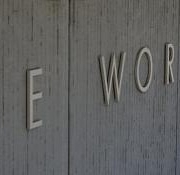Recipe for Democratic Entrenchment: Expert discusses the role of ICTS in advancing democratization
On September 15th, George Washington University’s School of Media and Public Affairs presented a guest lecture by Dr. Philip N. Howard about the role of ICTs in advancing democratization, especially in Muslim countries.
Howard, an expert scholar on the role of ICTs in political systems, based his lecture on research conducted in 75 countries in transition. The findings can be found in full in his book, The Digital Origins of Dictatorship and Democracy. An aspect of the lecture that was particularly fascinating was Howard’s “recipe” for democratic entrenchment – one that involves state capacity and a vibrant, tech-savvy wired civil society. He highlighted the ability of social media to monitor government elections.
The lecture, which emphasized the use of ICTs as a successful tool in promoting democratic societies, can be found in the video below.
So who’s next on the agenda for a revolution using Howard’s recipe? He says to think of countries that have a wired civil society + active online journalists + good state capacity; then watch those countries during the next major elections. If the heads of the countries try to rig the elections, there is a good possibility that their citizens will protest, creating chaos, uprisings, and possible transition to a new state in the same vein as Egypt. Howard lists several countries to look out for, such as Algeria, Iran and Kuwait.
Howard’s research focused primarily on Muslim countries, but one wonders if other countries might fit the recipe for civil society protests and/or revolution. Several African countries have elections coming up. Kenya, which has one of the most vibrant and open technology sectors, but a history of allegedly rigged elections, could be one to watch during the 2012 elections.






































